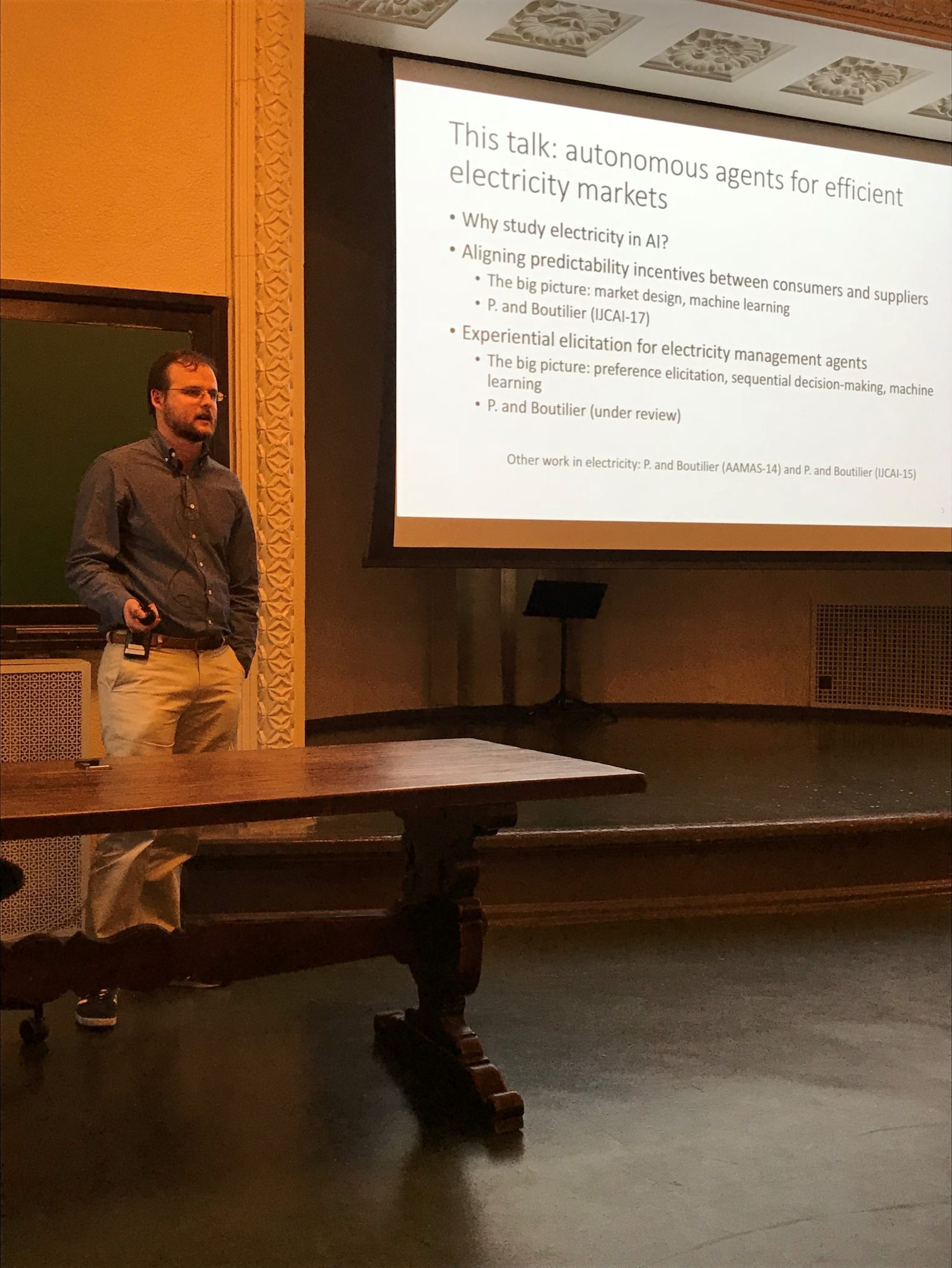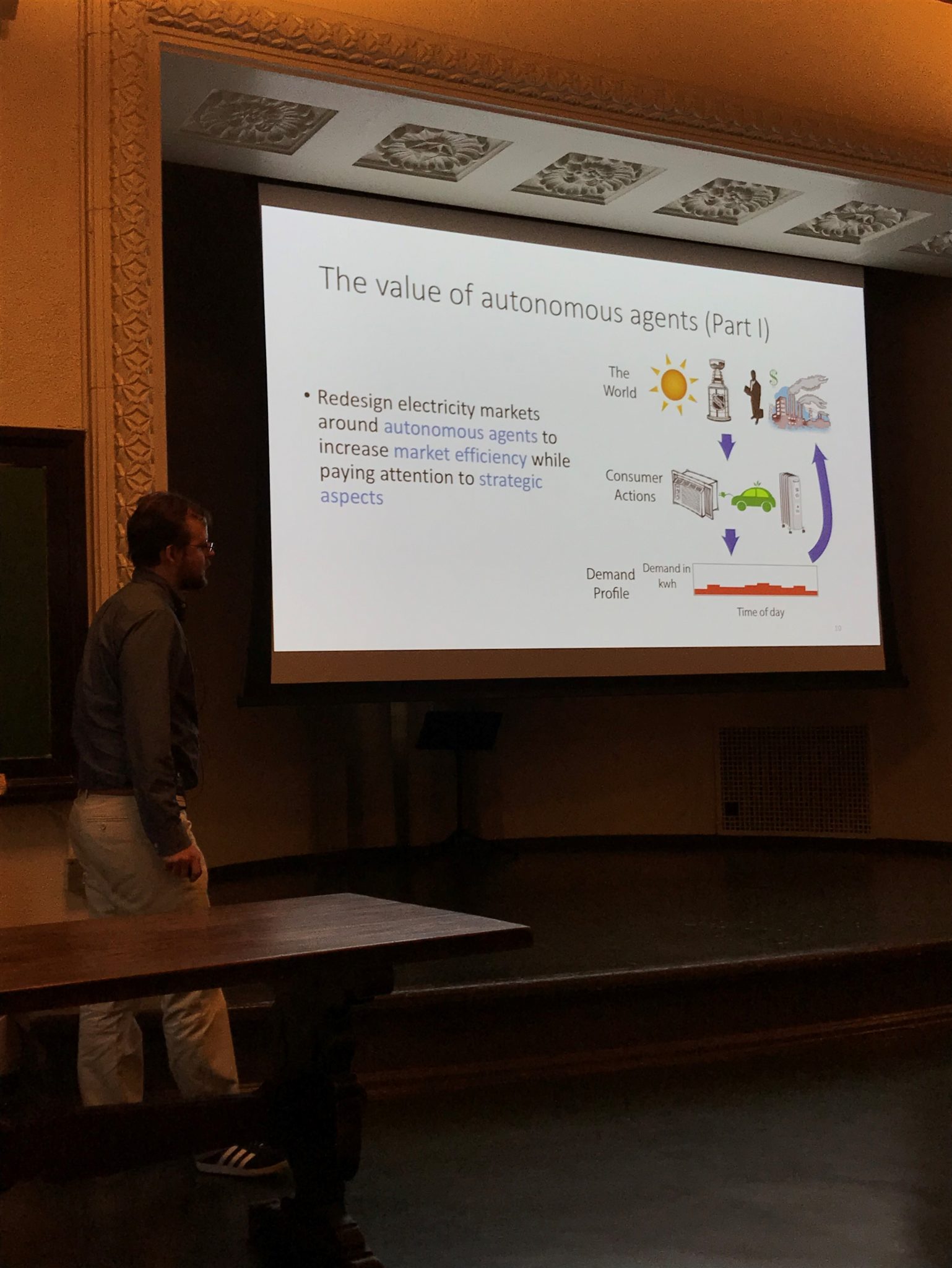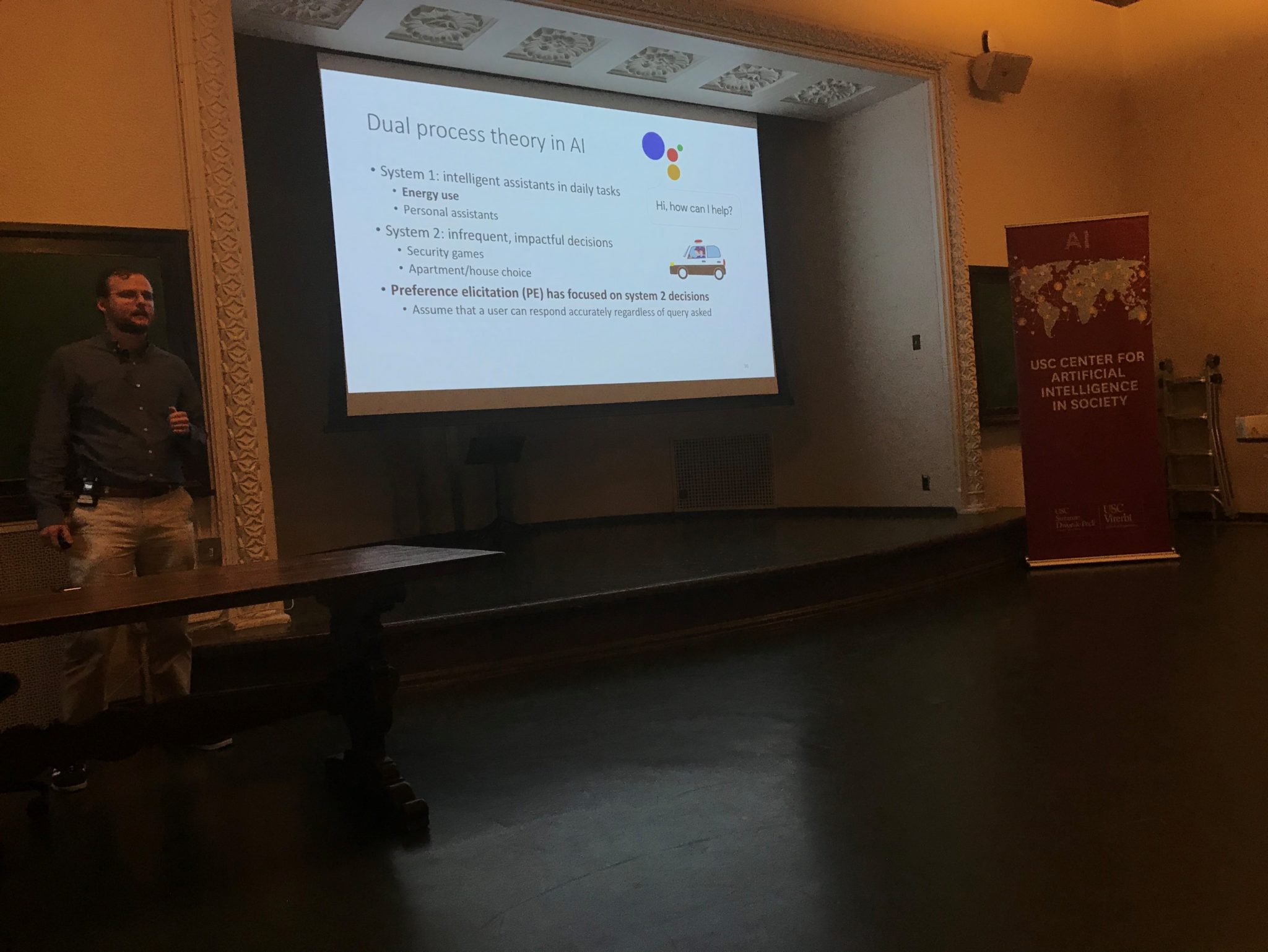
Andrew Perrault, a PhD candidate at the University of Toronto, lectured on his work focused on using autonomous agents for efficient electricity markets. Mr. Perrault has been involved in projects previously which matched medical residents to hospital internships using satisfiability (SAT) to address matching issues. He also served as a co-founder for “The School Fund” which uses a crowdfunding platform for secondary school scholarships for students in the developing world.
The preliminary part of Mr. Perrault’s lecture focused on predictability incentives between consumers and suppliers. He explained the positive effect studying electricity and artificial intelligence can have on reducing greenhouse gas emissions and to electrify and decarbonize electricity generation (i.e., replacing machines like cars which run on gasoline with electricity). Mr. Perrault explained that the difficulty lies in getting the consumers of electricity to react to the incentives in order to positively alter electricity consumption. The method he found most effective was utilizing autonomous agents to redesign electricity markets and increase the market efficiency without disturbing the good strategic market properties.

The secondary part of Mr. Perrault’s lecture analyzed the electricity market itself. He explained the fact that the consumers’ cost does not depend on predictability which is in comparison to the suppliers’ cost, which does. Through the use of prediction-of-use (POU) tariffs, each consumer can make a prediction ahead of time and have the option of forming groups and being treated as one large consumer. Mr. Perrault’s research also utilized cooperative game theory; he focused on the way it can assist in determining mutually acceptable cost sharing for electricity consumers who have formed a group. This is especially useful because cooperative games are found to be more flexible than exchange economies, in which all individual agents are consumers.
Thus, through the use of the POU or multiple POU (MPOU) game models, households can form coalitions. The coalition will have a profile which will be the sum of all of the members’ profiles and predict a baseline of their predicted consumption. However, the challenge with the POU is that the these profiles are made before the game starts and the optimal choice depends on what the other agents decide to choose. The results of this research showed the need for support of POU games to support multiple profiles. This validated Dr. Perrault’s approach in using utility models due to its impact on social welfare; impact showed modest gains with MPOUs and large social welfare loss due to lack of coordination in POUs.

Finally, the latter part of Mr. Perrault’s lecture discussed dual process theory and artificial intelligence. Dual process theory discusses our two systems of thinking as either intuitive or reasoning. Preference elicitation (PE) utilizes reasoning in assuming a consumer can respond accurately regardless of what query is being asked. However, by using experimental elicitation, the intuitive system can also be engaged and as a result delay queries. This delay leads to an increase in discounted utility which results in lower costs. Mr. Perrault’s future work will focus on strategic interactions between market design and preference elicitation.



